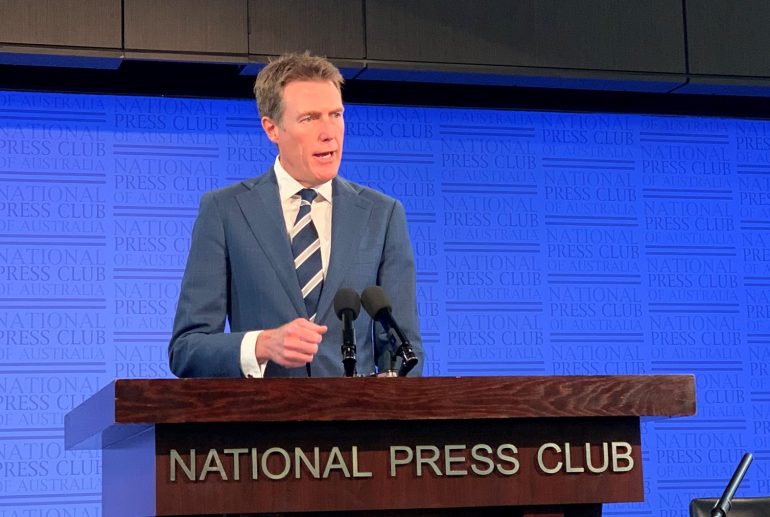Facebook, Twitter and other social media platforms should be treated as publishers, Australia’s Attorney-General Christian Porter believes, making them potentially liable for any defamatory comments published on the sites.
The country’s senior lawmaker’s view is that “the playing field is not at all fair at the moment” for traditional media companies when it comes to defamation.
He outlined his views during an address to the National Press Club in Canberra today canvassing religious discrimination laws, a Commonwealth Integrity Commission and press freedom.
“The right to publish material of many types has always been subject to other critical rights such as the right to a fair and unprejudiced trial, the right not to be defamed, the right not to be vilified,” Porter said.
“It is clear that to have a level playing field between online publishers such as Facebook and Twitter and traditional media publishers reform in this area is very necessary,” the AG said.
“I think it is clear that sensible reform is required that will be of great significance to Australian media.”
While not mentioned, one the most notable defamation case involving social media occurred in 2015, when former federal treasurer Joe Hockey sued then-Fairfax Media over a story titled “Treasurer for sale”. He was awarded $200,000, including $80,000 for two tweets about the story by Melbourne’s The Age account, which had nearly 425,000 followers. Claims against the published story were dismissed.
In recent years, people who are not public figures have turned to the courts after being defamed on social media, with mixed success. Notably, the social media platforms have remained aloof from disputes involving requests to take down defamatory material, focusing instead on issues such as copyright.
National defamation laws were introduced in Australia in 2006, before the rise of social media, and Porter argues that 13 years on: “I think it is fair to say that current defamation laws no longer strike the perfect balance between public interest journalism and protecting individuals from reputational harm”.
The Attorney-General said any reform “needs to consider the introduction of a serious harm threshold and should also provide clarity in areas where the law failed to operate as jurisdictions may have anticipated”.
When it comes to social media, Porter said: “My own view is that these online platforms should be held to essentially the same standards as other publishers but that how this should occur requires a sensible measured approach to reform taking into account the differences in the volume of material hosted between Twitter or Facebook and a traditional newspaper for instance.”
The Councils of Attorneys-General is meeting on 29 November to discuss the issue and Porter hopes to have the bulk of reforms to defamation in place by mid-2020.
His full speech is here.




















Trending
Daily startup news and insights, delivered to your inbox.